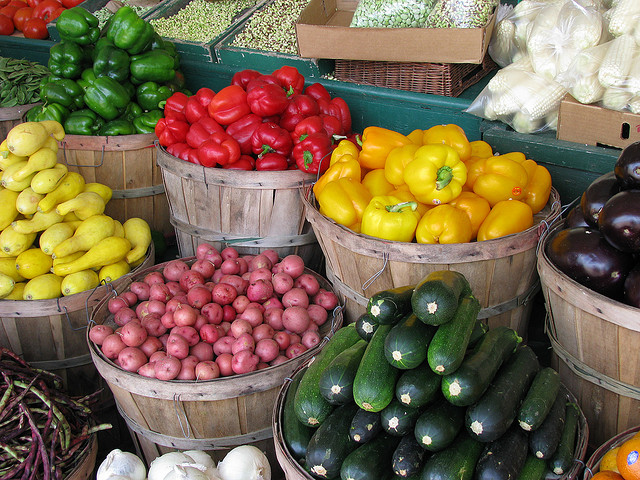Healthy Nutrition Made Easy
A healthy diet is the basis for a healthy life. It promotes performance and well-being and gives the organism what it needs. In addition, many diseases can be prevented with the right diet. Since every person is different and every body has different nutritional requirements, there is no general recommendation for a healthy diet. The following tips will help to make your diet healthier and thus have a great influence on your physical health and performance.
TIP 1: USE THE VARIETY OF FOODS IN YOUR DIET
No food contains all the necessary nutrients. A healthy diet should therefore be varied in order to supply the body optimally. A combination of low-energy and nutritious foods, such as vegetables and wholemeal products, is ideal.
Advantages of vegetable foods:
- No cholesterol
- High fibre content
- Supplying minerals, vitamins and secondary plant substances
- Deliver Cholesterol
- High proportion of saturated fatty acids
- Contain purines (may cause gout at elevated uric acid levels)
Therefore, vegetable foods should be used predominantly. For a healthy diet, animal foods should only take up a small portion of the diet. Fats, oils and foods with a high sugar content should be consumed particularly sparingly.
Healthy breakfast – starting the day with power
Eat like an emperor in the morning? This proverb does not come by chance: A healthy breakfast is important, so that you can master your day full of energy. Especially if you want to get in shape or stay in shape, the first meal of the day is crucial. A study from the USA shows that young women who have a particularly high protein and regular breakfast have less cravings during the day and less desire for sweets or salty foods.
For the protein kick in the morning, we recommend our organic protein muesli. Soy flakes provide you with energy for your muscles. Nuts, seeds and berries round off the taste experience. See for yourself:
TIP 2: EAT AS NATURALLY AND UNPROCESSED AS POSSIBLE
A healthy diet should consist only to a minimal extent of industrially processed foods. When shopping, fresh food should preferably end up in the shopping trolley.
Healthier alternatives for processed foods:
- Dried fruit instead of sweets
- Home-cooked dishes made from fresh ingredients instead of finished products
- Freshly squeezed juices instead of supermarket products containing sugar
- Those who prepare their own meals from fresh and unprocessed ingredients have control over what is contained. The less they are pre-cooked or processed, the healthier they are.
Delicious protein supply: 30 g protein in 100 g peanut butter
Unprocessed alternatives, such as pure organic peanut butter without additives, should therefore be used more frequently.
Our tip: Peanut butter tastes particularly delicious on a protein bread with bananas. The best part? 100 g of peanut butter contains just 30 g of protein. Have you become curious?
TIP 3: CEREAL PRODUCTS & POTATOES PROVIDE YOU WITH MANY NUTRIENTS
Grain products and potatoes contain many vitamins, complex carbohydrates and minerals. The choice of cereal products should be based on wholemeal products, as these have the highest content of healthy ingredients. Rye and spelt are particularly suitable.
Wholemeal products contain a lot of fibre, of which at least 30 g per day should be consumed. They promote digestion, provide better saturation and prevent diseases such as diabetes. Wholemeal products should therefore be consumed several times a day, preferably in combination with low-fat ingredients. Those who have to eat gluten-free food due to intolerance can fall back on cereals such as millet, maize and buckwheat. The common cereals such as wheat, rye and spelt have a high gluten content.

Do you have a gluten intolerance? Don’t worry, there are now enough alternatives for the usual cereal products. If you want to know which foods are gluten-free, then you should definitely stop by here:
TIP 4: FIVE PORTIONS OF FRUIT AND VEGETABLES A DAY
A healthy diet includes at least 3 portions of vegetables and 2 portions of fruit per day. They contain many important vitamins and secondary plant substances. In order to preserve them, they should be eaten fresh or cooked only for a very short time. Fruit and vegetables can ideally complement your healthy diet as a side dish of the main meals. They can also be well integrated into your diet as a snack. Especially the B vitamins 2, 6 and 12 play an important role for your physical and mental well-being. Here you can find out what effect vitamin B12 has and why it is particularly important in a vegan diet.
Tip: Try eating a handful of fruit or vegetables with every meal. Eat your muesli with an apple in the morning or prepare raw vegetables for the road. Also homemade juices and smoothies offer a delicious change.






